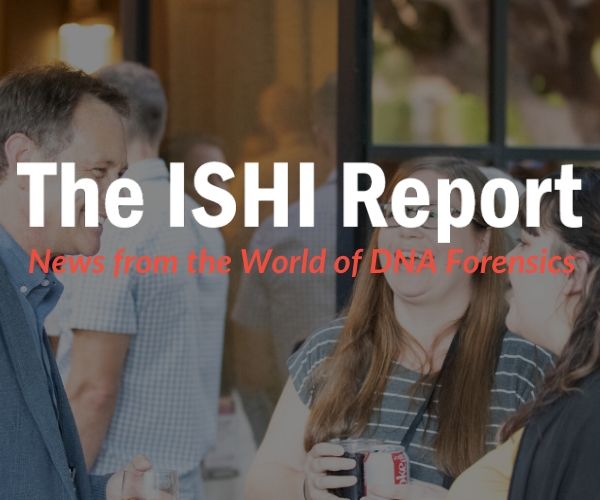What a difference a couple of months make. In February we were lamenting the cold weather and this month we are dealing with the ugly impact of COVID-19 on every facet of our lives! We are proud to share that Promega has been actively assisting in fighting the outbreak through our manufacturing of reagents and supplies being used to support 26 different COVID-19 diagnostic kits worldwide. Since the beginning of the epidemic in January, Promega has provided enough amplification reagents and enzymes to enable testing an estimated 52.5 million samples for SARS-CoV-2 worldwide.
You may be wondering what the plan is for holding this year’s 31st International Symposium on Human Identification. The short answer is that at the time of publication we are still monitoring the COVID-19 pandemic to assess the feasibility of holding a physical conference. The health and safety of our ISHI attendees, exhibitors, partners, and staff is our top priority and we will look to the Centers for Disease Control and Prevention (CDC) and the World Health Organization (WHO) for guidance.
Risk-free registration for the in-person event is being offered to all attendees, with the option to receive a full refund for cancellations made up to the date of the conference. You can also reserve a place at ISHI and defer payment until a later date. In the event that ISHI can’t be safely held in person, we are exploring the possibility of holding the event in a virtual format for a reduced rate. If this happens, general session talks will be recorded and available on demand. A selection of workshops will also be available.
We know that your lives and work are also being impacted by the virus. It’s our hope that this latest ISHI Report will provide you with a welcome diversion as it explores current topics in forensic science and introduces forensic professionals who are influential in the field.
We were thrilled to Zoom with CeCe Moore and Paul Fronczak, our keynote speakers for this year’s ISHI to talk about Paul’s story and the role that genetic genealogy played in resolving the mystery of his identity. Be sure to check out the interview to get a sneak peek into their keynote address and to learn more about CeCe’s new television show!
Our colleague Ken Doyle documents several very cold cases solved through the work of the DNA Doe Project, including a century old mystery. Karra Porter, co-founder of the Idaho Cold Case Coalition describes how she came to organize the group and provides details on how individuals can contribute to its success.
Ronaldo Carneiro da Silva Junior, who will be leading this year’s Grupo Cientifico Latino-Americano de Trabajo Sobre Identificacion Humana (GCLAITH) provides an update on forensic practices in the region and invites interested parties to submit abstracts for this year’s GCLAITH workshop.
We also interviewed Michael Coble and Jo Bright who will be co-chairing a workshop on presenting probabilistic genotyping data in court at ISHI. They elaborate on the advantages that probabilistic genotyping can offer and provide practical advice for adopting this technology. If you are interested in learning more, consider registering for their workshop.
Dr. Maria Corazon A. De Ungria shares details on The Innocence Project Philippines Network, Inc. (IPPN)’s efforts to free wrongfully convicted persons in the Philippines. She discusses the numerous challenges the dedicated team from law schools, scientific and academic laboratories and non-governmental organizations have experienced since its inception, as well as their plans for the future.
On the lighter side, we feature an interview with Walther Parson in which he describes how he became involved in forensic science. His path to the lab might surprise you. Walther will be presenting at the upcoming ISHI on Otzi the “Ice Man” and his modern-day relatives.
Don’t forget to visit the conference website for updates on ISHI including details on submitting abstracts for oral presentation, workshop offerings and more.
We hope you enjoy the May issue. As always, we welcome your ideas and written contributions to our publication.
START READING!


